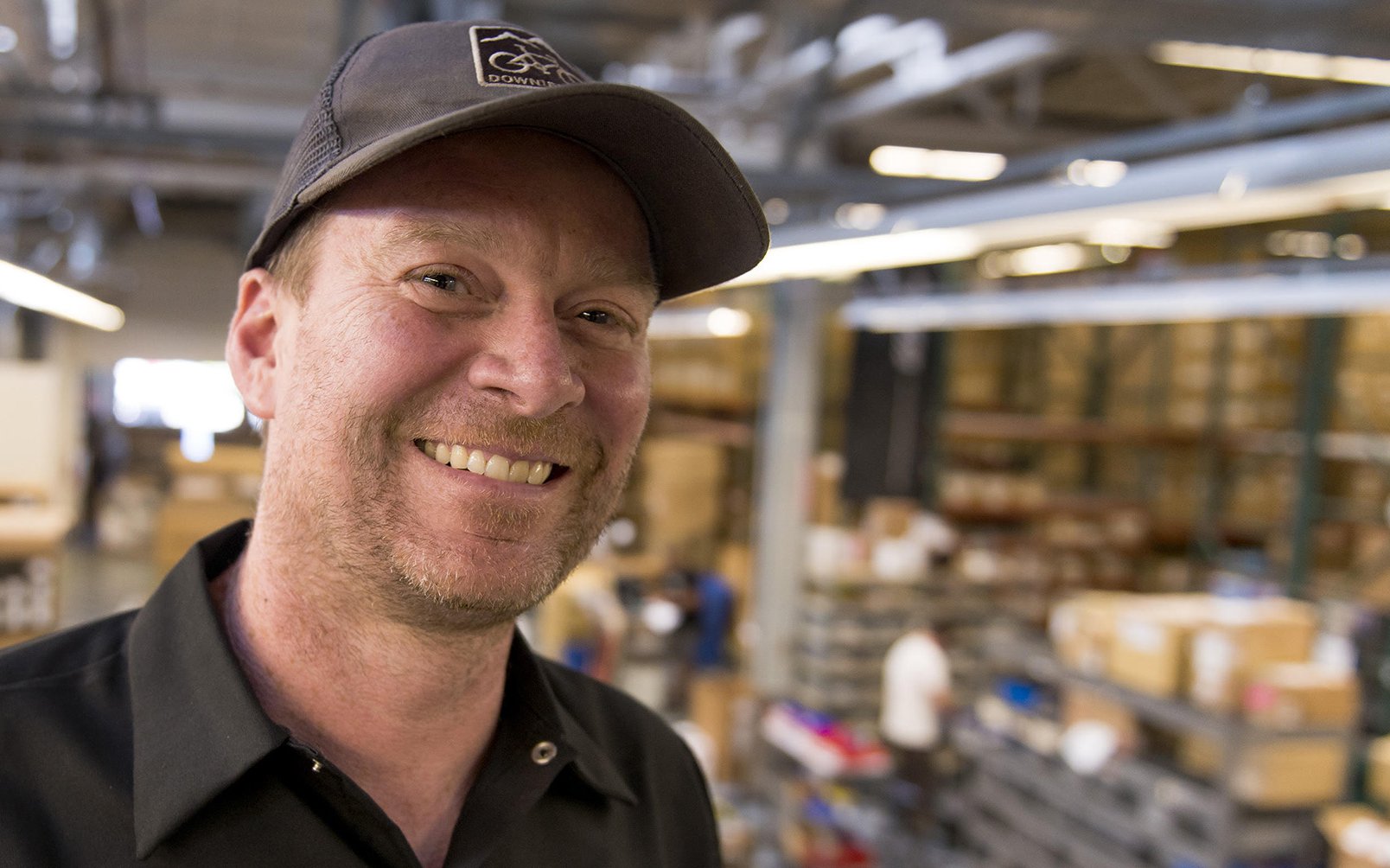
Joe Talks PayDirt
Santa Cruz CEO Joe Graney Interviewed
Santa Cruz has always donated money to projects that benefit mountain bikers. The company has long been a generous supporter of the Sierra Buttes Trail Stewardship, which is responsible for building and maintaining the vast network of trails in the Lost Sierra. More recently Santa Cruz has been a mover in the San Vicente Redwoods, a project the will eventually see 22 miles of mountain bike specific single track built. Initially the company was part of a consortium of local brands that helped get things off the ground, and then they ponied up another 500 grand to give a bigger boost to the endeavour.(That's just a couple of projects – you can learn more about Santa Cruz's generous funding efforts in the press release about PayDirt)
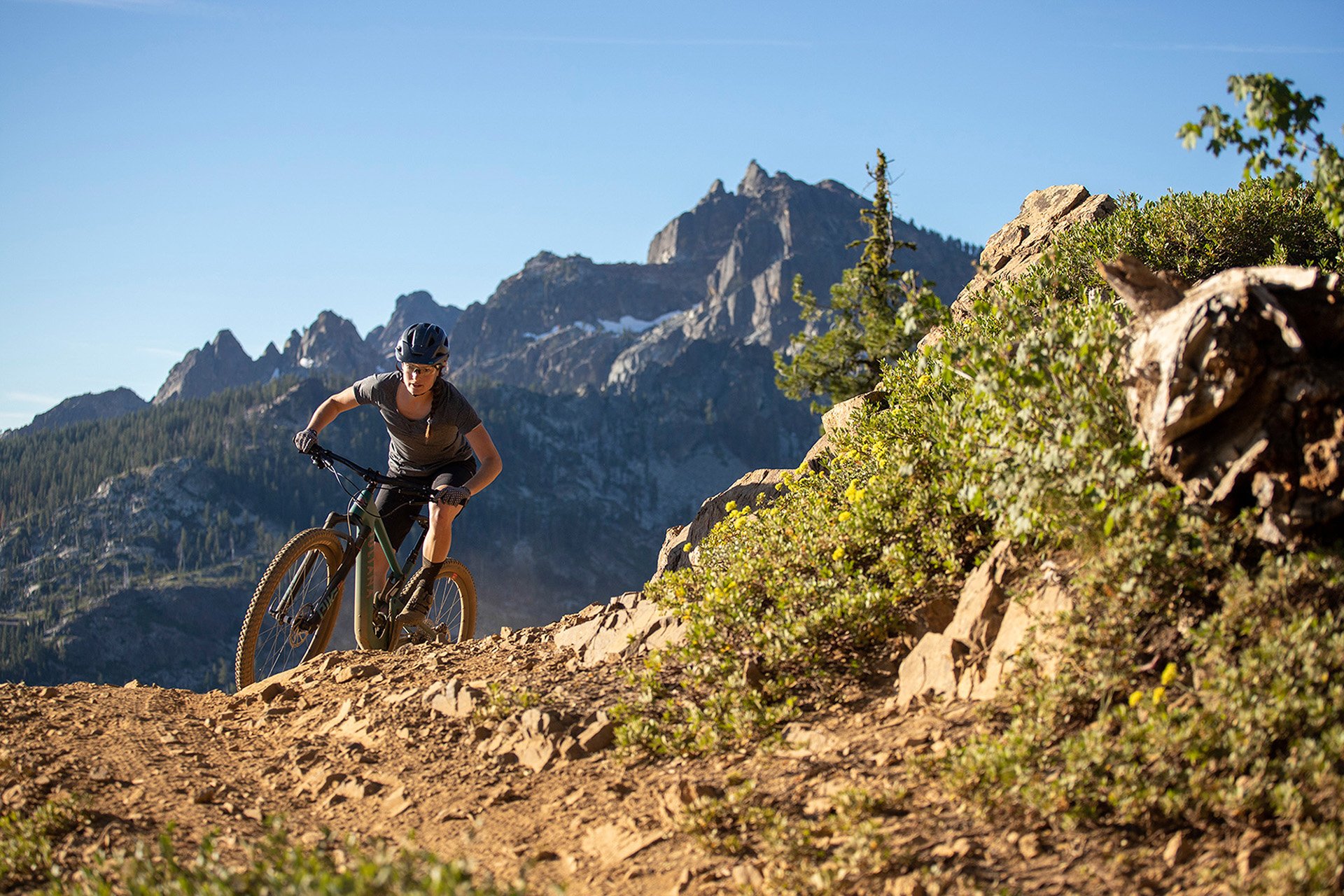
Santa Cruz Bikes' long term support of the Sierra Buttes Trail Stewardship has been instrumental to their success.
Working on projects close to home makes sense and these are also the projects Santa Cruz is most likely to hear about, but with Paydirt, Santa Cruz's plan to donate a million bucks to worthy projects over three years, the hope is to target trails, advocacy and rider engagement all over the globe.
Often when you talk to someone about advocacy and funding trail projects at a bike company, it's not someone in a senior role. And often the stoke is low. It feels like some poor schmuck got stuck with running an advocacy project off the corner of their desk, on top of other duties. Santa Cruz often does things a little differently and in this case the guy who picked up the phone was Santa Cruz CEO Joe Graney. I wasn't that surprised, because Joe is a salt of the earth character who generally seems keen to get his hands dirty, but this is the first time I've been pointed toward the boss to talk about pushing cash towards grass roots projects.
Cam McRae: Can you tell me Joe, if there was something about the way you were distributing money before, that you felt was somehow limiting.
Joe Graney: It was pretty ad hoc and we never really had a plan for what we were doing. And we would get different requests and sometimes we still had budget when somebody came to us and sometimes we didn't but we would blow the money anyway. And I think that's what led to me wanting to one; up our commitment and two: to make it public. There's a lot of people at the company, myself included, that think standing on a soap box to take credit for doing what you should be doing anyway smacks of... I guess it seems pretty douchey. Making a video about you going to do some trail work, like, give me a break. This is what should be normal, not something you should be bragging about. And so I think we've always just kind of done this in the background a bit and what we're starting to realize is there's probably a lot of people out there who could use some seed money and some support, but they don't know how to get ahold of it. They don't know how to ask for it. And because of that, we had probably more limited channels than we needed to have and this was an opportunity to let people know that we want to help out. We just don't know where to put the cash so if we can get to know more people that are doing things, then maybe we can take an increased commitment and instead of going deeper with people that we know well, if we could go a bit broader with people we don't know of yet as well.
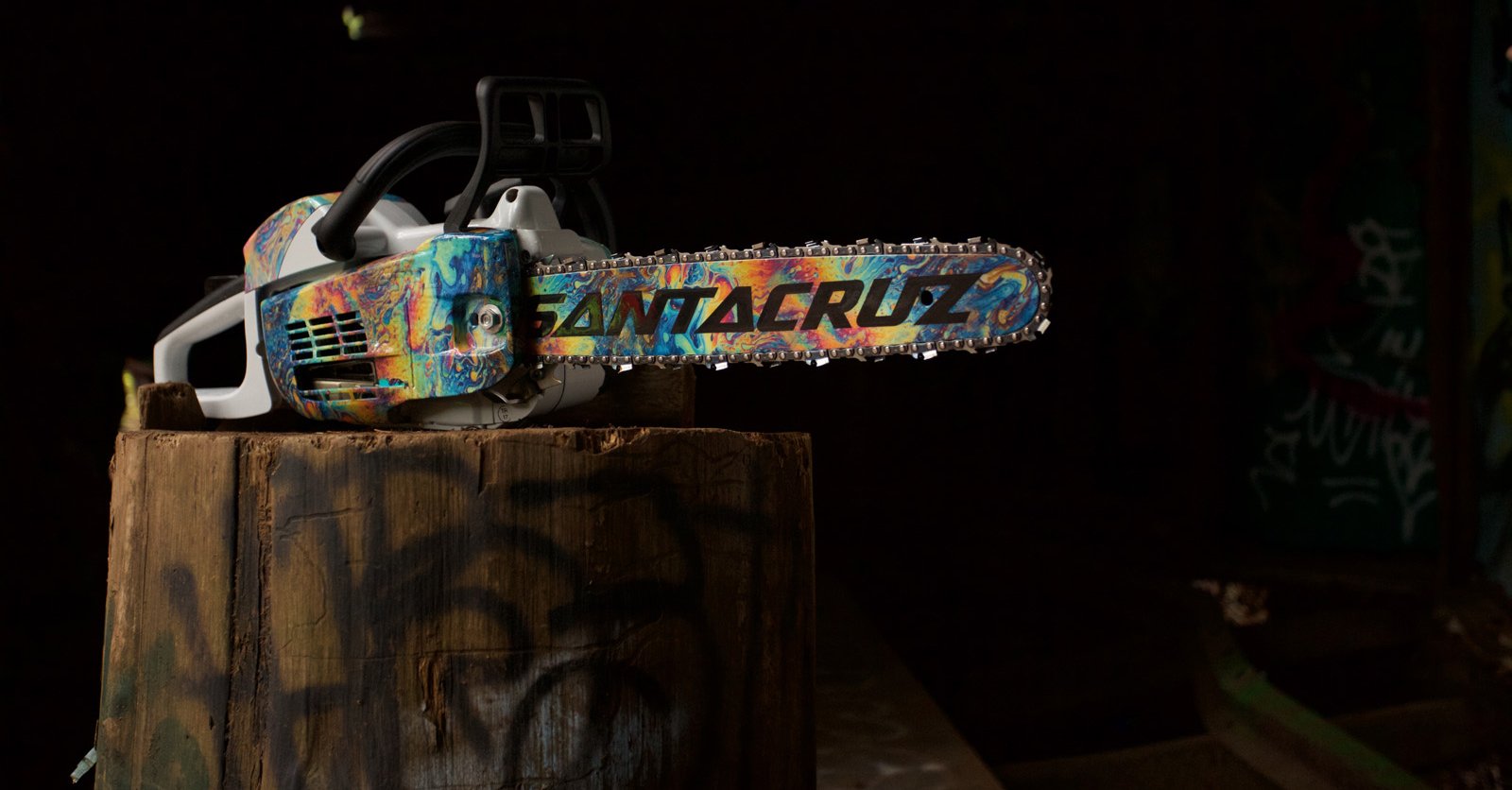
When Santa Cruz heard about a North Shore trail builder raising money for a chainsaw, they just went out and bought him one. They even painted i with rainbows and gave it a name; The Unicorn Slayer! Photo - Grant Robinson
Cam McRae: So part of it is, isn't necessarily about the money this round. It's about identifying, groups, and worthy causes for future opportunities.
Joe Graney: Yeah. Kind of like growing a bit more of a network so that, it's not all with the usual players. When you're in California, you know who the local groups are. And then, you know, there's national groups that have a place and need donations too. But there's a lot of small things that, we don't know about an seeing what Mountain Bikers of Santa Cruz did with some financial support. You know, it's not just showing up it's really writing checks and helps people get momentum going. So, when that happened in the last three, four years it was the inspiration to put some more money behind it and spread the net out a little bit further.
It seems this project, in terms of timing and division of funds, is very unstructured. Is the selection criteria going to be similarly flexible?
To be honest, we don't know what we're going to get to yet. I guess loose, yeah. The way that we've kind of framed it is, we're open for kind of projects and activities that will increase access to signal track for people.And in some cases that might be a discreet, trail digging thing. It might be maybe somebody needs to form a group and they need money to do that or they need some maybe matching funds or maybe kids need bikes. So they do a group that can't afford bikes to get out and ride after school. We'd be open for all things. And I guess once we figure out what the different things look like, maybe we can get provide a little bit of guidance inside it.
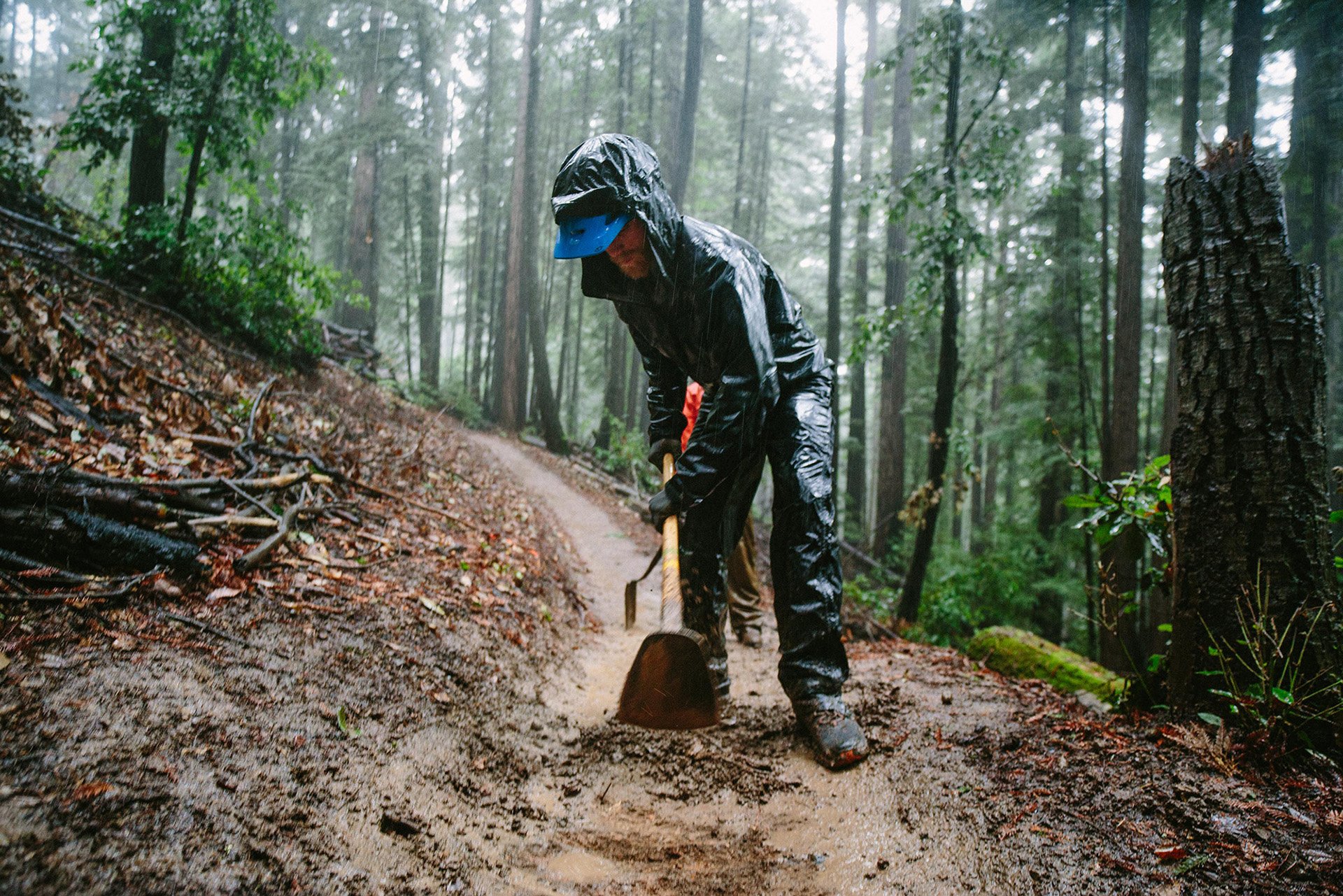
Mountain Bikers of Santa Cruz has been advocating for and building trails in the county since 1997. Recently they have ramped up all their efforts and SCB has upped their commitment to the group as well.
And then getting the word out through media and social media is the plan there?
We'll try to launch the program so people are a bit more aware of it. And then when things come in, especially things that are pretty worthy and we're going to give some cash out, hopefully report back on social channels to make people more aware. I've met some people that think we're going to get flooded with requests and responses, which I'd be glad for. There will be a one page web site on the Santa Cruz Bicycles website, that explains the program and gives you a form to submit an application and somebody will get back to you with questions or what happens next.
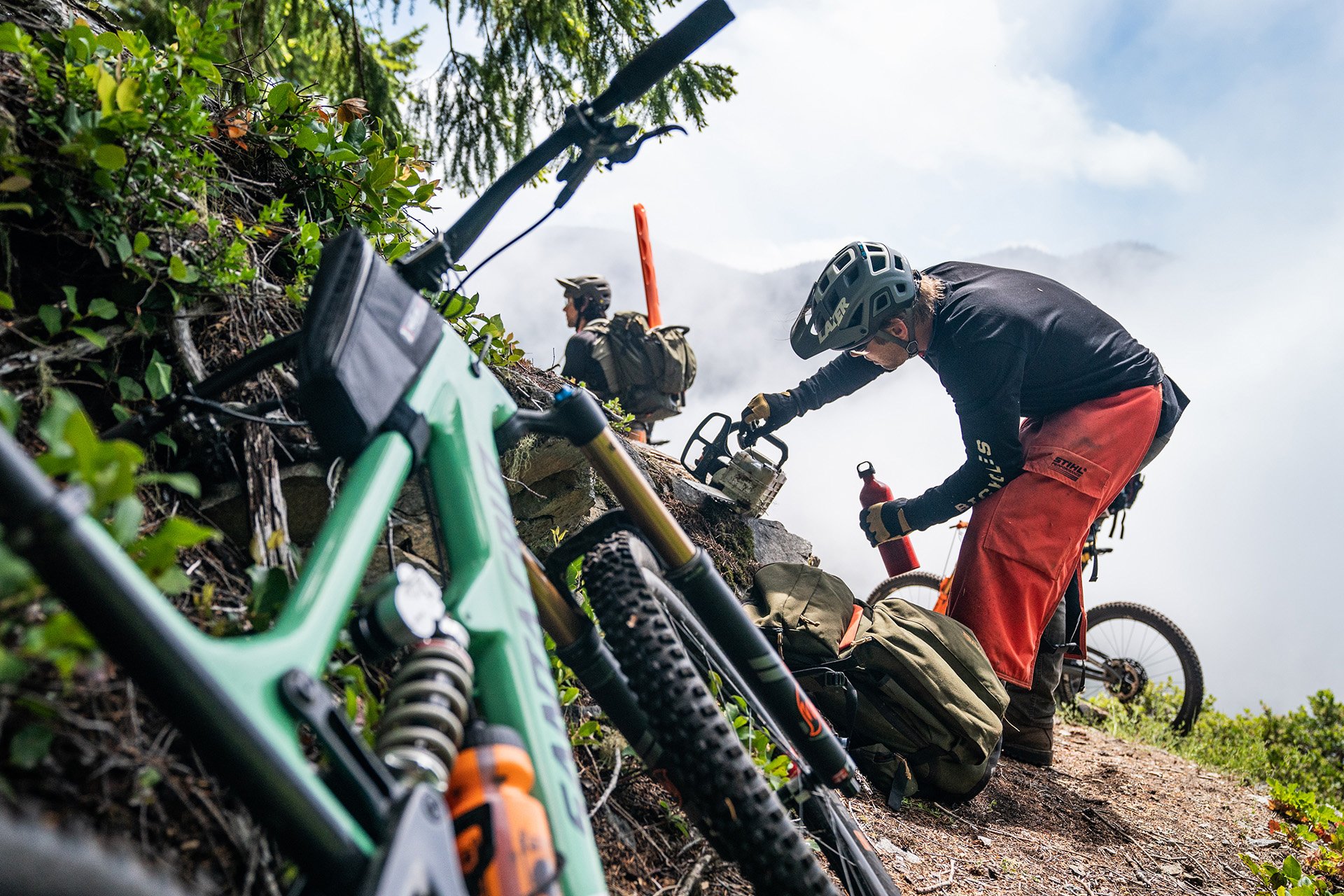
"Generally all the events we support have a significant trail stewardship and fundraising element to them: this includes Downieville Classic, NZ Enduro, Trans-Cascadia, Ard Rock Enduro, Old Cabin Classic and Trans-Provence."
One of the things I'm wondering about is...I'm sure you've had the experience where you've been to an area and, it's maybe an area that could use some economic stimulus and there are a lot of elements that make it look like it would be a perfect place for mountain biking, but there's, for whatever reason, nothing going on. Is that something that you would put some effort into? Identifying places where there isn't mountain biking or very little but where it's ripe with opportunity?
I guess I'm hoping that some of those places come to light in this process. But I suppose the hope is that there's somebody who is passionate about making that place a mountain biking, mecca you know, back up some kind and is on a mission to do that. And they need help with funding. So they can explain to us what the vision is and what their plan is to realize that vision and we can help them do it, by giving them some funds or maybe some volunteers or bringing some attention to the area. Sometimes it's as simple as that. Put the spotlight on it so others are aware so that you can start getting mountain bike tourism happening.
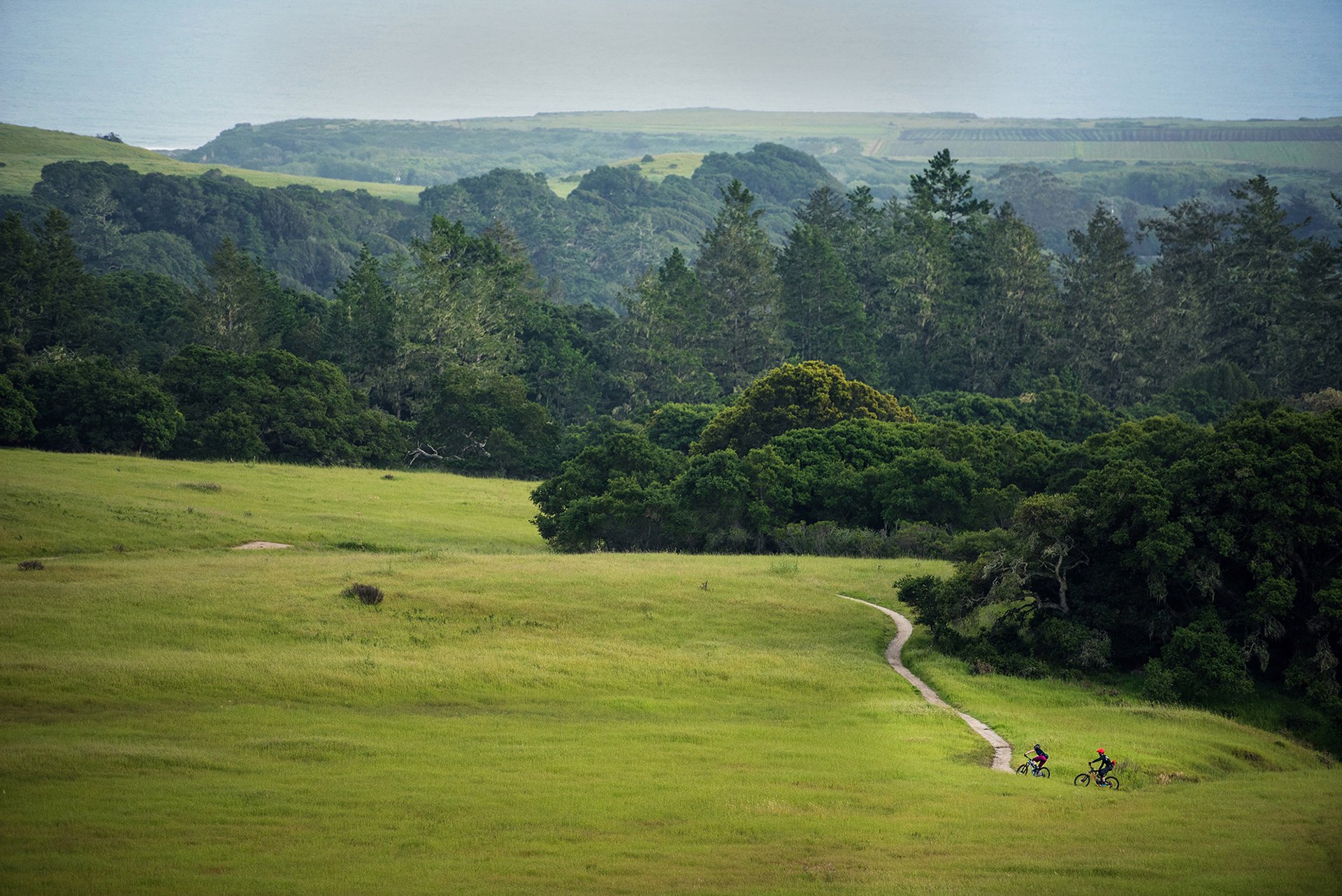
Wilder Ranch is home to most of the legal trails in Santa Cruz, but that is set to change in the coming years.
Can you tell me about some of the projects you've been involved with on the funding side so far, can you tell me which ones you would say have been the most successful and, how you evaluate that success.
I mean there's not too many projects actually Cam that are single discreet things that I'm saying; this would be a massive success. There's been a lot of them over the years and a lot of it is recurring support. This year the Sierra Buttes trail stewardship, they're really close as an organization to being able to really move to other towns. Like in Quincy California, now they've set up a whole trail network of multi use trails there, in cooperation with the forest service and that's actually getting people to move there because there's recreation opportunities. I think the process is like a couple of people move, some other folks start to come through town to ride there and camp and spend some time and then you need a brewery or a coffee shop, you know? You buy food, you get the coffee and then you got like an aprés spot. And then that's where things could kind of take off in a certain area. I think without a doubt, probably the biggest success stories that we've helped to just order what they've done for a long time as SBTS. But inside of you that group's history there are so many success stories, one that it's hard to pick one.
With this new way of distributing money have you talked about how you're going to measure the success so that future projects will be able to be a little bit more tailored to what you're looking for?
I think we're, we're trying to stay pretty open 'cause we didn't want to limit it to people you know who maybe already have a nonprofit already established. It didn't feel like that was a filter we want to apply because sometimes that's the first step for people is kind of getting that going so that helps with fundraising. And you know, I think probably the first couple of rounds Cam, will learn sort out what seems to be the types of projects we want to align ourselves with and the types of people and maybe we can get some more granular guidelines on it. But I didn't want to limit what people's creativity was because if it's really all about digging trail I don't think it recognizes the people who do some of the really long arduous work of like sitting in meetings and going to neighborhood groups to get input and that slow stuff or also legal work and lobbying to really get laws changed. So we thought we'd leave it open and not just kind of make it about whoever's going to build booters and some nice berms and see what we get. I suppose probably by middle of next year we might have some additional, guidelines for people when we've decided really what appealed to us most.
It's a bit like venture fund money. So, you know, hopefully by giving some to some high risk things, maybe they don't turn out. Maybe they do. At some point there has to be mutual trust about what we're doing.
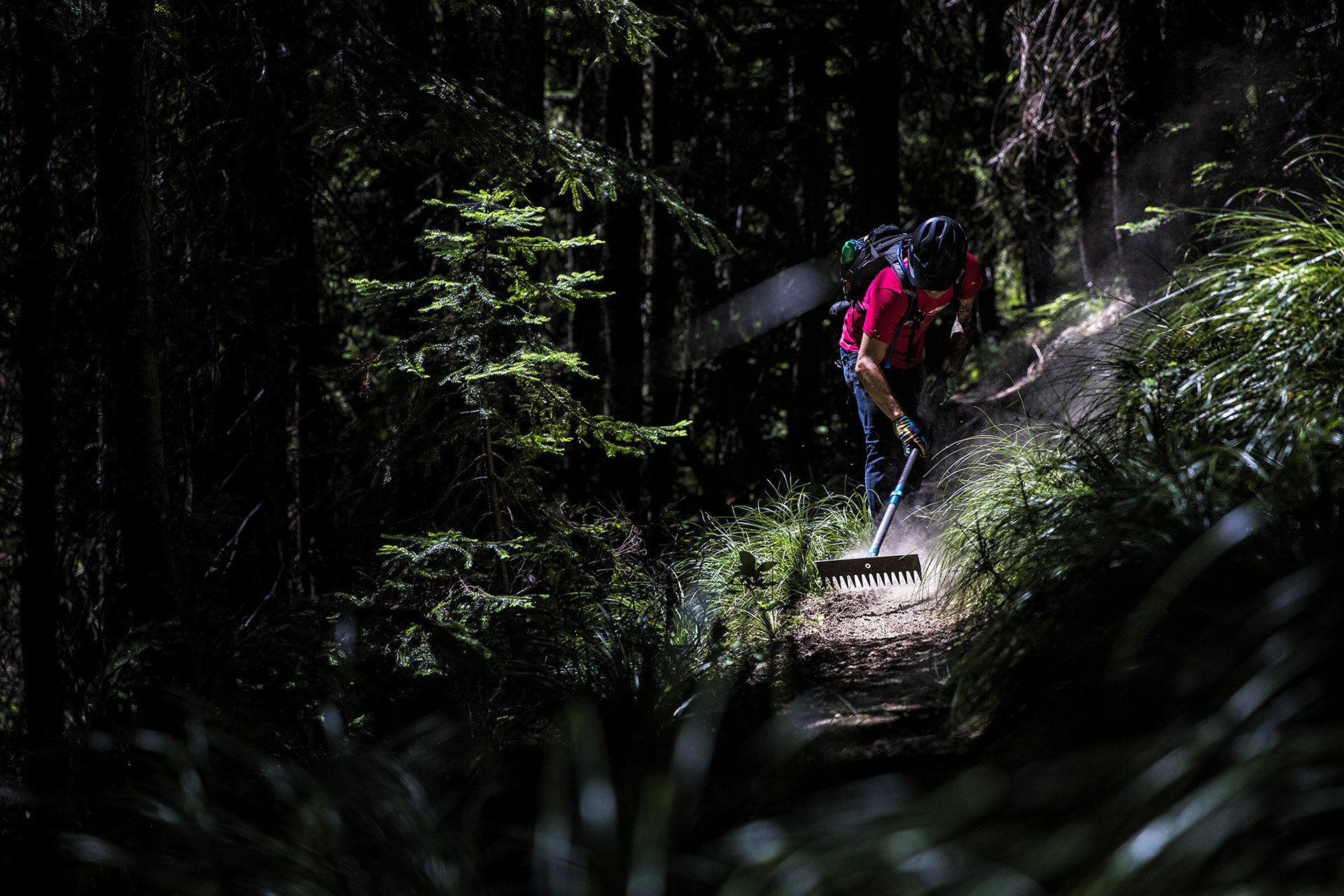
Transcascadia takes place on some incredible trails, and the Santa Cruz Employee race team has logged 500 hrs on them to keep them running fast.
Venture capitalism is a good way to look at it actually. Are you going to set up guidelines for what should be in applications? Is it going to be drilled down that much?
There's some guidelines on like what we're looking for and what you should put in. And then, uh, you know, without making it such an arduous process that it weeds out too many people, but that at least you've got enough info to evaluate it and then follow up. So we'll have somebody that'll follow up on these things, so it's not just sending it into the ether. But yeah, there'll be guidelines. They'll be kind of a form that you submit so it's not fully free form.
You may not have put any, any thought into this, but maybe it's something you already know about. And I know you've got projects that you've been passionate about... if you could envision a dream submission like that, just the one that you loved throwing money at, what sort of components would be there?
What changed my life was when I got into bikes as a teenager. And then it went away for awhile, like after I got a license and I was really fortunate that cycling came back into my life and really became a big part of it. And then it becamse what I do for a profession and all my friends ride bikes and so forth and now I'm starting to ride with my kids. So things that would introduce mountain biking to people who might not otherwise be exposed, whether that's like cycling teams at school or sometimes the cycling team at school really needs a stacked loop that's close by that they can train on. I think that's pretty inspirational because it's good for young people to expose them to the sport. You know, and it's nice to see families ride bikes together. So at least for me personally, I'm into that. We'll have a committee of people that'll probably review that, that have different outlooks on areas that might need it or maybe people that are more confidence inspiring than others. So that we'll try to keep it well rounded, not spend it all on one thing.
Thanks very much for your time Joe. I look forward to seeing where the money goes.
Thanks for getting the word out Cam.
For more on Santa Cruz's initiative to distribute $1 million to mountain biking initiatives check this release from Santa Cruz...

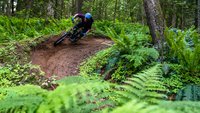
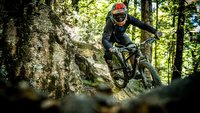


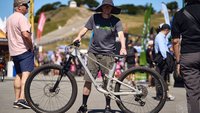




Comments
Please log in to leave a comment.